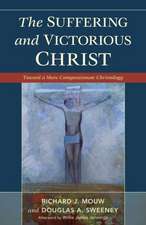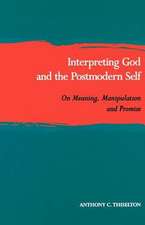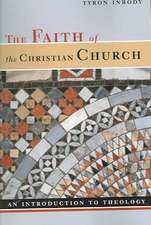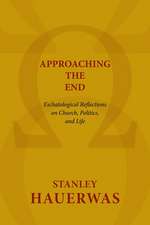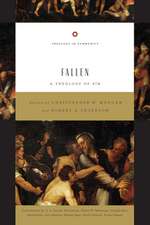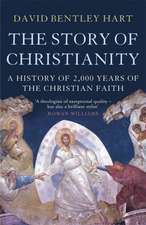The Beauty of the Infinite: The Aesthetics of Christian Truth
Autor David Bentley Harten Limba Engleză Paperback – 30 sep 2004
The book begins by tracing the shifting use and nature of metaphysics in the thought of Kant, Hegel, Nietzsche, Heidegger, Lyotard, Derrida, Deleuze, Nancy, Levinas, and others. Hart pays special attention to Nietzschebs famous narrative of the bwill to powerb -- a narrative largely adopted by the world today -- and he offers an engaging revision (though not rejection) of the genealogy of nihilism, thereby highlighting the significant binterruptionb that Christian thought introduced into the history of metaphysics.
This discussion sets the stage for a retrieval of the classic Christian account of beauty and sublimity, and of the relation of both to the question of being. Written in the form of a "dogmatica minora," this main section of the book offers a pointed reading of the Christian story in four moments, or parts: Trinity, creation, salvation, and eschaton. Through a combination of narrative and argument throughout, Hart ends up demonstrating the power of Christian metaphysics not only to withstand the critiques of modern and postmodern thought but also to move well beyond them.
Strikingly original and deeply rewarding, "The Beauty of the Infinite" is both a constructively critical account of the history of metaphysics and a compelling contribution to it.
Preț: 274.68 lei
Nou
52.58€ • 57.13$ • 44.19£
Carte disponibilă
Livrare economică 31 martie-14 aprilie
Specificații
ISBN-10: 080282921X
Pagini: 462
Dimensiuni: 158 x 239 x 25 mm
Greutate: 0.65 kg
Editura: William B. Eerdmans Publishing Company
Textul de pe ultima copertă
The book begins by tracing the shifting use and nature of metaphysics in the thought of Kant, Hegel, Nietzsche, Heidegger, Lyotard, Derrida, Deleuze, Nancy, Levinas, and others. Hart pays special attention to Nietzschebs famous narrative of the bwill to powerb -- a narrative largely adopted by the world today -- and he offers an engaging revision (though not rejection) of the genealogy of nihilism, thereby highlighting the significant binterruptionb that Christian thought introduced into the history of metaphysics.
This discussion sets the stage for a retrieval of the classic Christian account of beauty and sublimity, and of the relation of both to the question of being. Written in the form of a "dogmatica minora," this main section of the book offers a pointed reading of the Christian story in four moments, or parts: Trinity, creation, salvation, and eschaton. Through a combination of narrative and argument throughout, Hart ends up demonstrating the power of Christian metaphysics not only to withstand the critiques of modern and postmodern thought but also to move well beyond them.
Strikingly original and deeply rewarding, "The Beauty of the Infinite" is both a constructively critical account of the history of metaphysics and a compelling contribution to it.



